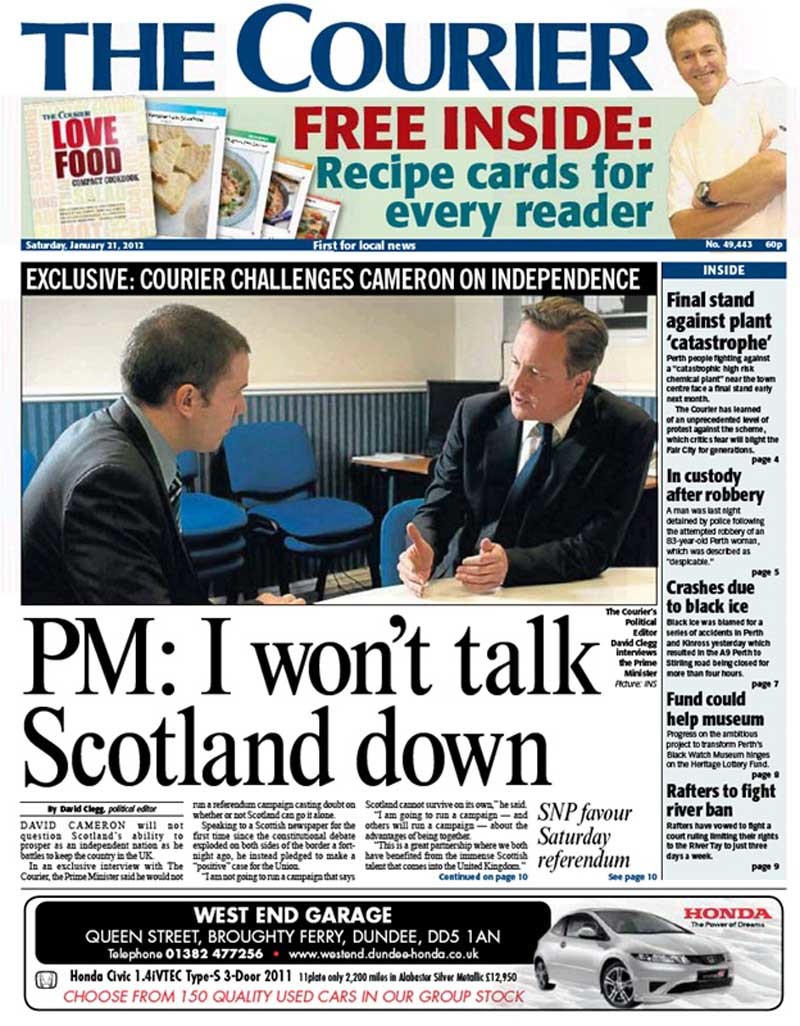David Cameron will not question Scotland’s ability to prosper as an independent nation as he battles to keep the country in the UK.
In an exclusive interview with The Courier, the Prime Minister said he would not run a referendum campaign casting doubt on whether or not Scotland can go it alone.
Speaking to a Scottish newspaper for the first time since the constitutional debate exploded on both sides of the border a fortnight ago, he instead pledged to make a “positive” case for the Union.
“I am not going to run a campaign that says Scotland cannot survive on its own,” he said. “I am going to run a campaign and others will run a campaign about the advantages of being together.
“This is a great partnership where we both have benefited from the immense Scottish talent that comes into the United Kingdom.”
Mr Cameron added: ”Let’s have a positive conversation, because I think the Union is a very positive thing.”
However the Prime Minister dismissed calls for Scots living in England to be given a vote in the referendum First Minister Alex Salmond plans to hold in autumn 2014. And he said the current electoral register should be used, indicating the UK Government will continue its opposition to SNP plans to extend the vote to 16- and 17-year-olds.
He added that the issue would be a ”high priority” for him and expressed his ”profound hope and belief” that the Scottish people would vote to keep the link with the UK.
Speaking in the Conservative Party office of his Witney constituency in Oxfordshire, he said he ”cares deeply” about the United Kingdom, and feels that is a view shared by most British people.
”I profoundly hope that that is what people in Scotland will vote for,” he added. ”It is a very high-priority issue. There are very few things that are more important.”
However, asked about a campaign debated in the Scottish Parliament this week for Scots living in other parts of the UK to be given a vote, he said: ”It is a vote for people who live in Scotland. I think fundamentally it’s going to be an issue for the Scottish people. But of course everyone in the United Kingdom will want to be involved in the debate.”
Mr Cameron’s comments came after former Liberal leader Lord Steel warned senior English politicians should withdraw from the independence debate or risk handing victory to the SNP.
But, while indicating the campaign would be led in Scotland, Mr Cameron stressed it was still an issue of importance to people in the rest of the UK and he would play a part in the battle.
”I think those people who believe there are lots of people in England who are relaxed or want to see the Union break up I don’t find that,” he said. ”We are going to have this big debate, we are going to have this vote but I hope we can get on with the vote, get on with the debate and secure the future of the United Kingdom.”
Photo INS News Agency
